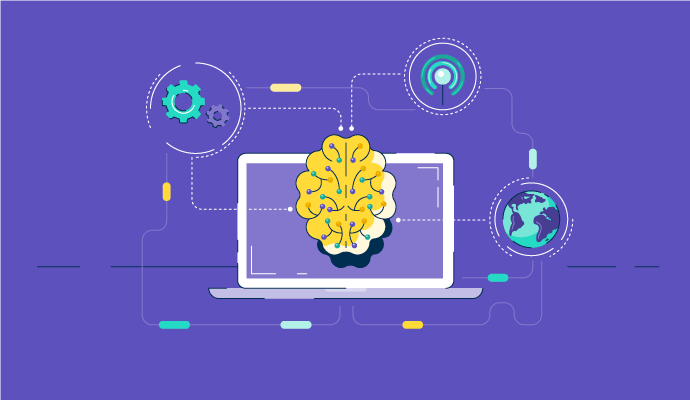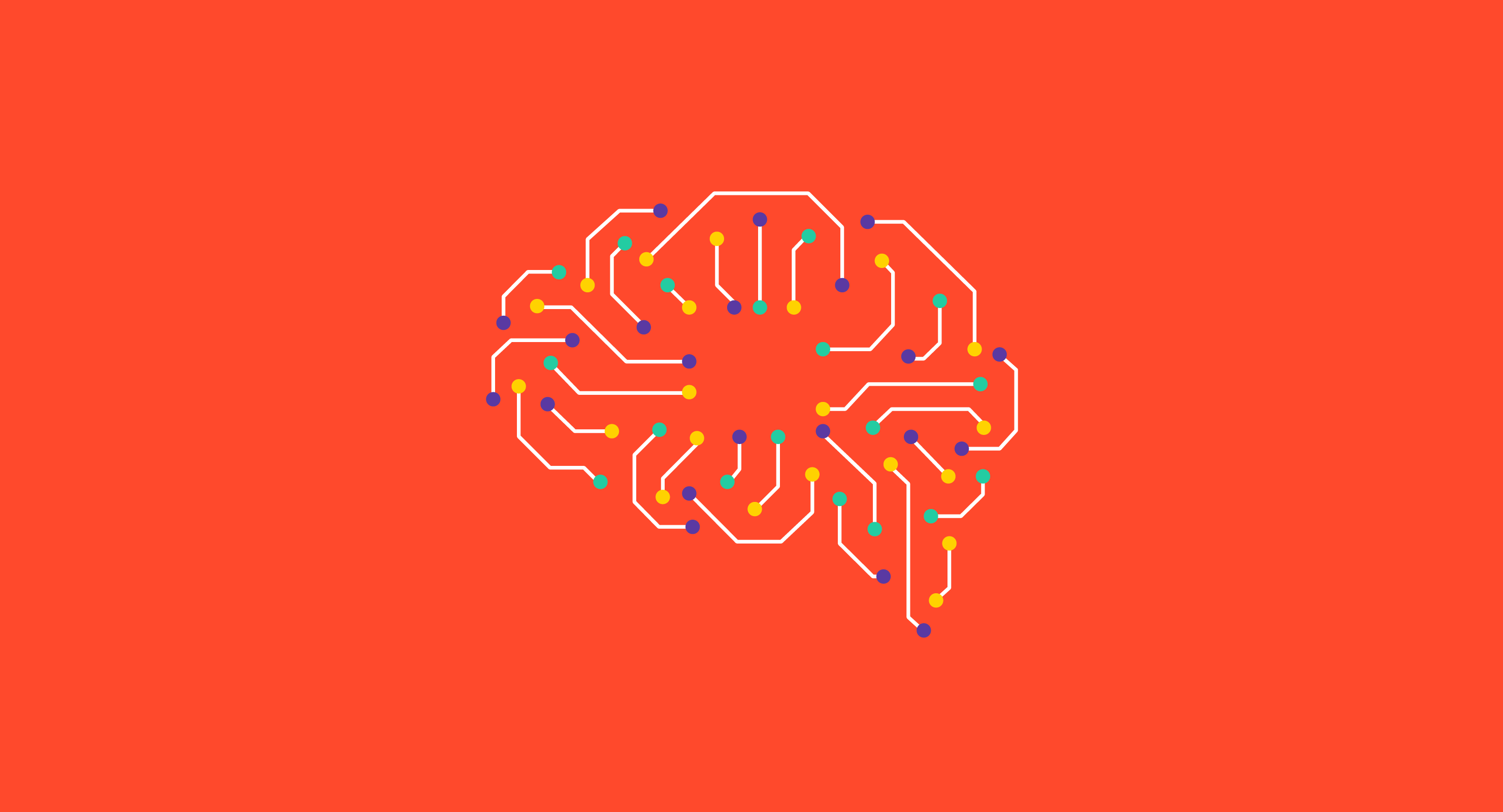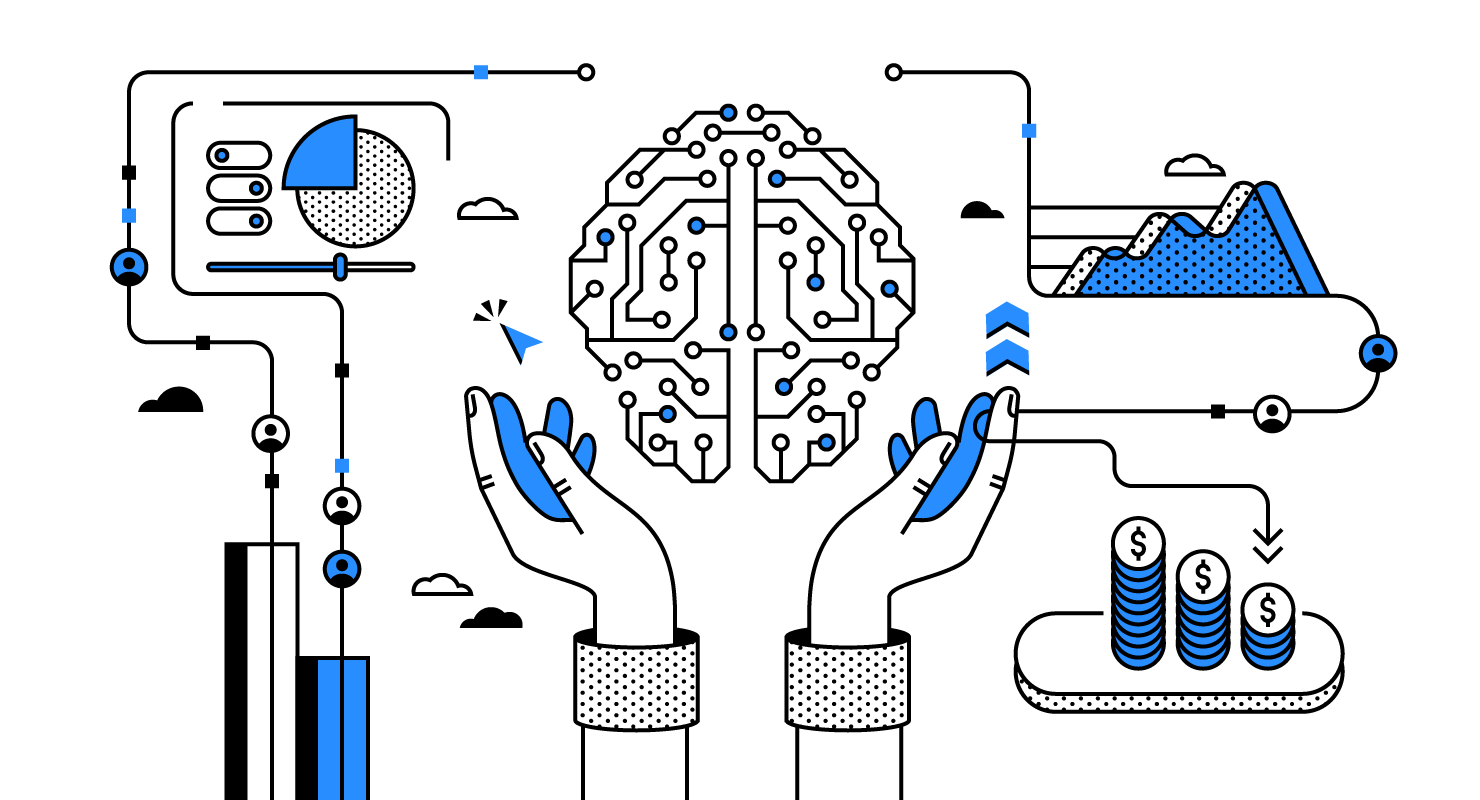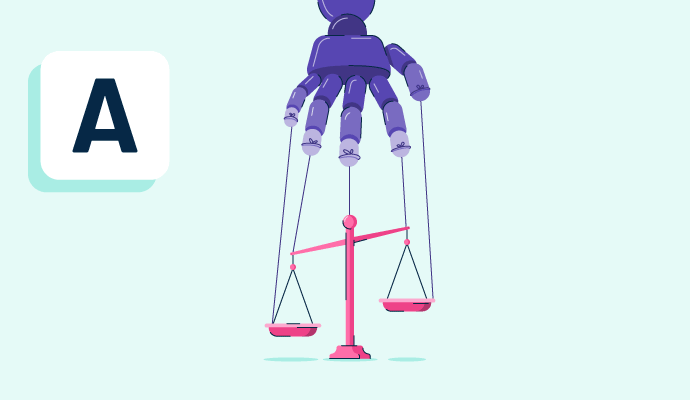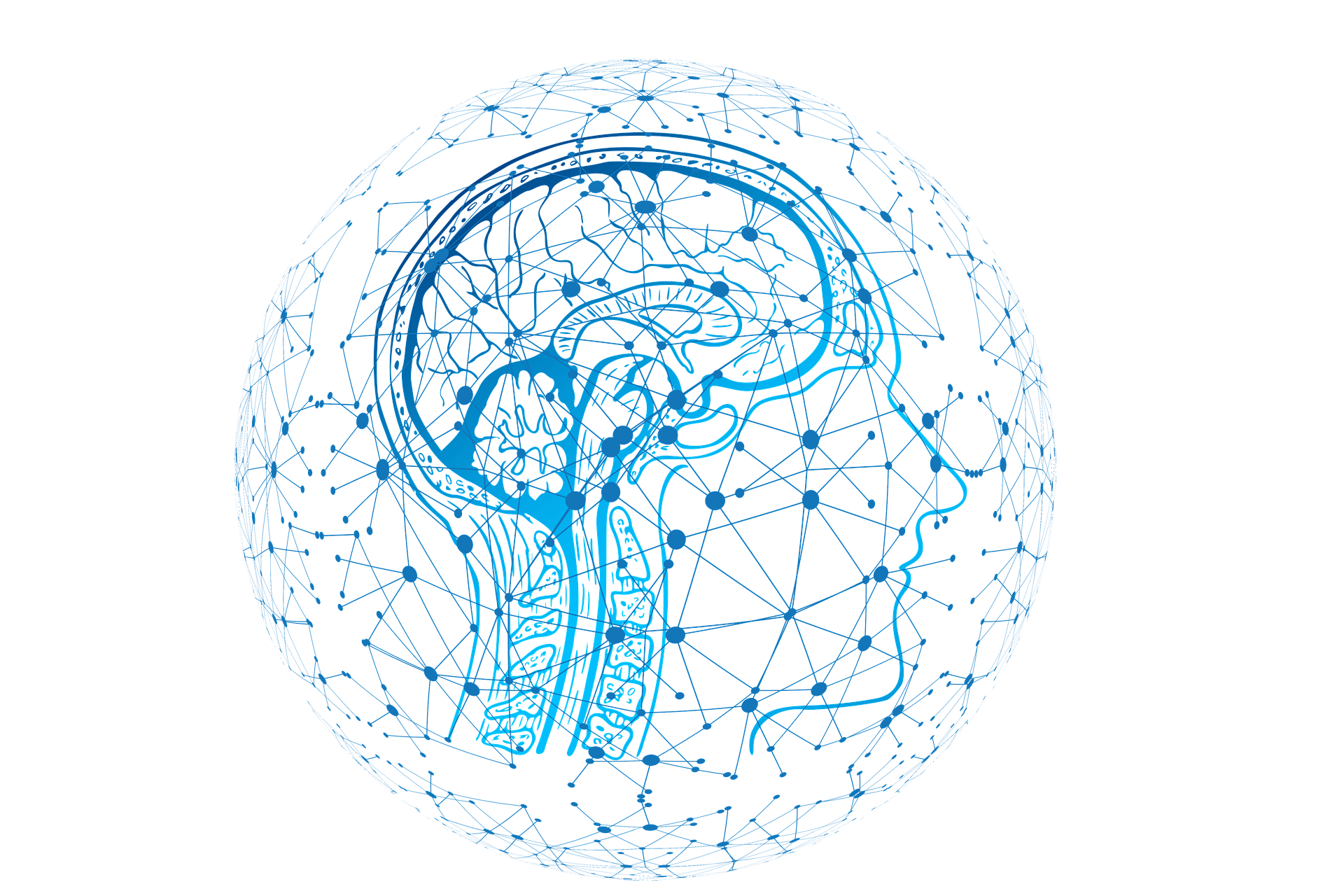Data Science and Machine Learning Platforms Resources
Articles, Glossary Terms, Discussions, and Reports to expand your knowledge on Data Science and Machine Learning Platforms
Resource pages are designed to give you a cross-section of information we have on specific categories. You'll find articles from our experts, feature definitions, discussions from users like you, and reports from industry data.
Data Science and Machine Learning Platforms Articles
Seq2Seq Models: How They Work and Why They Matter in AI
Imagine effortlessly translating an entire book from one language to another or condensing pages of dense text into a few clear sentences – all with just a few clicks.
by Chayanika Sen
10 Best Data Labeling Software With G2 User Reviews
As the prominence of AI grows, it is being commercialized at a lightning-fast speed.
by Shreya Mattoo
What Is Artificial Intelligence (AI)? Types, Definition And Examples
Remember Sophia, the humanoid that appeared on the late-night show with Jimmy Fallon?
by Amal Joby
What Is Artificial General Intelligence (AGI)? The Future Is Here
Artificial general intelligence (AGI) could be the best or worst thing ever happening to us.
by Amal Joby
2023 Trends in AI: Cheaper, Easier-to-Use AI to the Rescue
This post is part of G2's 2023 digital trends series. Read more about G2’s perspective on digital transformation trends in an introduction from Emily Malis Greathouse, director, market research, and additional coverage on trends identified by G2’s analysts.
by Matthew Miller
Barriers Toward Adopting AI and Analytics in the Supply Chain
I recently attended the Tableau Conference, where I indulged my nerdiness for four days. As a self-described data science evangelist, I was thrilled to see autoML, natural language generation, and other advanced automation features be added to Tableau, one of the world’s leading data visualization and business intelligence platforms.
by Anthony Orso
The Importance of Data Quality and Commoditization of Algorithms
Algorithms. Algorithmic. Machine learning. Deep learning. If you’re reading this piece, there is a good chance you have come across these terms at some point. An algorithm probably recommended this article to you. The umbrella term for all of the above is artificial intelligence (AI), which takes data of different flavors and provides you with predictions or answers based on that. There is a good chance you have benefited from this technology in some way, whether in a map application, image search from your favorite retailer, or intelligent autocomplete.
by Matthew Miller
How to Choose a Data Science and Machine Learning Platform That’s Right For Your Business
Big data is the zeitgeist of the 21st century. The sheer volume of data available to businesses, government agencies, educational institutions, and consumers is virtually limitless compared to the days when computers were the size of computer science labs.
by Anthony Orso
Data Trends in 2022
This post is part of G2's 2022 digital trends series. Read more about G2’s perspective on digital transformation trends in an introduction from Tom Pringle, VP, market research, and additional coverage on trends identified by G2’s analysts.
by Matthew Miller
How to Make Algorithms Which Explain Themselves
Back in 2019, I wrote my predictions of advancements we'd see in AI in 2020. In one of those predictions, I discussed the perennial problem of algorithmic explainability, or the ability for algorithms to explain themselves, and how that will come to the fore this year. Solving this problem is key to business success, as the general public is becoming increasingly uncomfortable with black-box algorithms.
by Matthew Miller
Artificial Intelligence in Healthcare: Benefits, Myths, and Limitations
Artificial intelligence (AI) is reinventing and reinvigorating the modern healthcare system by finding new links between genetic codes or driving robots that assist with surgery.
by Rachael Altman
The Role of Artificial Intelligence in Accounting
Accounting is one of the most important, yet daunting and expensive departments in almost all companies.
Accountants oversee all financial operations of a business to help it run smoothly and efficiently. These include preparing and analyzing financial statements (e.g., cash flow, income statement, balance sheet), paying taxes on time, and maintaining the companies’ general ledger (GL). All these tasks require a great deal of human interaction that takes time and money; no matter how careful an employee may be, there is always the chance for human error, which could snowball and lead to devastating financial results in the future.
by Nathan Calabrese
Tech Companies Bridging the Gap Between AI and Automation
Automation and artificial intelligence (AI) are important, interrelated tools that help organizations streamline their processes and add intelligence to their workflows.
They allow businesses to reach organizational goals by automating business processes, whereby they can increase efficiency and adapt to new business procedures.
by Matthew Miller
How COVID-19 Is Impacting Data Professionals
Remote work isn't the future. It's a current reality, with nearly 75% of U.S. workers working remotely at least some of the time, according to Owl Labs' State of Remote Work 2019 Report. Data scientists and other data professionals are no exception to the rule and are able to bring their work home with them if and when the need, or desire, arises. However, a switch to remote work isn't as straightforward as simply taking a work laptop home.
by Matthew Miller
True Data Protection Demands More Than Just Regulation
I’ll let you in on a (poorly kept) secret: The use of advanced analytics and other AI-powered capabilities that help users manage and interrogate data isn't new. The practice has been around far longer than the current bubble of hype surrounding AI has been inflating.
by Tom Pringle
What Is the Future of Machine Learning? We Asked 5 Experts
Forget what you may have heard. Machine learning isn’t some new concept or study in its infancy.
by Devin Pickell
Data Science and Machine Learning Platforms Glossary Terms
Data Science and Machine Learning Platforms Discussions
0
Question on: Vertex AI
What software libraries does cloud ML engine support?What software libraries does cloud ML engine support?
Show More
Show Less
It's supporting approx all trending libraries.
Show More
Show Less
Google Cloud ML Engine supports many software libraries, including TensorFlow, scikit-learn, XGBoost, Keras, etc....
Show More
Show Less
0
Question on: Databricks Data Intelligence Platform
What is Lakehouse in Databricks?What is Lakehouse in Databricks?
Show More
Show Less
Lakehouse is a new and open data management architecture solution that combines the best features of the data lake and warehouse.
Show More
Show Less
Traditional data warehouses used highly structured data that was high-cost but easy to use.
Data lakes handles unstructured data at low cost in a way that was difficult to use.
Lake house makes it easy to handle both types of data in way that is almost as cheap as a traditional lake and almost as easy as a traditional warehouse
Show More
Show Less
Lakehouse architecture is the merging of the data warehouse and data lake concepts into a single platform, with built-in support for lineage maintenance and ML.
Show More
Show Less
What is a Data Lakehouse? A data lakehouse is a new, open data management architecture that combines the flexibility, cost-efficiency, and scale of data lakes with the data management and ACID transactions of data warehouses, enabling business intelligence (BI) and machine learning (ML) on all data.
Show More
Show Less
0
Question on: Databricks Data Intelligence Platform
What are the features of Databricks?What are the features of Databricks?
Show More
Show Less
It supports large amount of data with capability to write code in SQL, Spark, Python and R.
In the backend, it stored the data in the parquet file which compress the data to great extent.
Its easier to debug the ETL pipeline using notebooks as compared to traditional ETL pipeline created using SSIS or Informatica.
Data Migration or ETL pipeline executes faster as compared to other ETLs
Show More
Show Less
Main features of Databricks are:
Compliance
End to end
Notification and logs
Jobs scheduler
Access control
Visualization
Run notebook as job
Integration
Interactive exploration
Secure deployment
Notebook workflows
Integrated identity management
Collaboration
Auditing
Dashboard
Databricks runtime
Show More
Show Less
Delta Lake
Lakehosue platform
Schema evolution
Data quarantine & Data Quality
Data Integration & Transformations
Show More
Show Less
Data Science and Machine Learning Platforms Reports
Mid-Market Grid® Report for Data Science and Machine Learning Platforms
Winter 2026
G2 Report: Grid® Report
Grid® Report for Data Science and Machine Learning Platforms
Winter 2026
G2 Report: Grid® Report
Enterprise Grid® Report for Data Science and Machine Learning Platforms
Winter 2026
G2 Report: Grid® Report
Momentum Grid® Report for Data Science and Machine Learning Platforms
Winter 2026
G2 Report: Momentum Grid® Report
Small-Business Grid® Report for Data Science and Machine Learning Platforms
Winter 2026
G2 Report: Grid® Report
Enterprise Grid® Report for Data Science and Machine Learning Platforms
Fall 2025
G2 Report: Grid® Report
Small-Business Grid® Report for Data Science and Machine Learning Platforms
Fall 2025
G2 Report: Grid® Report
Mid-Market Grid® Report for Data Science and Machine Learning Platforms
Fall 2025
G2 Report: Grid® Report
Grid® Report for Data Science and Machine Learning Platforms
Fall 2025
G2 Report: Grid® Report
Momentum Grid® Report for Data Science and Machine Learning Platforms
Fall 2025
G2 Report: Momentum Grid® Report
